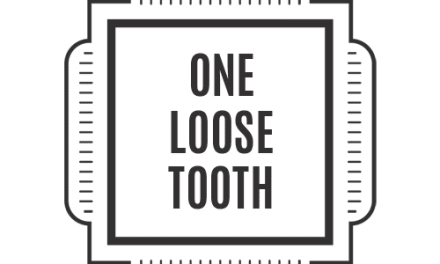I was listening to an old Dental Realist podcast on the way into work today where they talked about ideal patients.
You know, ideal patients are the ones who accept treatment, open wide, numb easily, stay still, pay on time, say thank you, and don’t exist.
When we signed up to become dentists nobody ever really described the harsh environment we work in and the psychological distress we seem to expose our patients to (and vice versa).
The environment I’m talking about is not the dental office (those are often quite nice); I am talking about the oral cavity – that small, dark, wet hole that is filled with bacteria. Dentists have to work in millimeter increments within a confined space surrounded by delicate soft tissues while our patients are conscious and we swing a drill that spins, whizzes, and sprays water. On top of it all, most of the materials we work with are hydrophobic (they have to stay dry)…
Hm…when you put it that way, I understand why someone may want to avoid their dental appointments.
All things considered, I am often amazed by what dentists can accomplish in the mouth. However, I also find myself (as I’m sure all dentists do), frustriated by the anxiety and at times hatred directed at me and my support staff simply due to the expectation that a particular experience is about to be terrible.
If you are thinking about becoming a dentist, you should know that the restoration of a tooth to normal form and function is quite a challenge and most patients present with at least one obstacle that increases the difficulty of what many may describe as “routine” procedures. I have not practiced dentistry very long, but I have learned one thing, nothing is routine.
If you are already practicing dentistry, you should know that we’re all in this together and your patients are not the only ones complaining about post-op sensitivity.




You make a lot of good points. Patient’s definitely do not have a full appreciation for how difficult it is to work inside a mouth. Especially a mouth connected to a fully conscious/anxious patient. In addition a lot of our patients have had pretty traumatic dental experiences in the past which makes the stress levels run even higher.
I believe that a lot of the stigma around dental appointments has to do with the surgical approach to treating caries. Traditional drilling and restoration weakens the tooth and predisposes it to a lifetime of potential problems and complications. In the future as the profession moves more into prevention and a less aggressive management of caries like SDF, resin infiltration the stigma will slowly start to change. In addition, we may be a few years away from managing caries with medications and lifestyle changes.
Thanks for the commentary Christian. I’m hopeful that we will see an advancement in the management of caries chemically – see CAMBRA protocol linked below. Managing caries chemically would require a major shift in our profession – from an insurance and reimbursement standpoint and also clinical decision making.
https://carifree.com/media/wysiwyg/pdf/A_clinicians_guide_to_CAMBRA_a_simple_approach.pdf
http://www.cda.org/Portals/0/journal/journal_102007.pdf